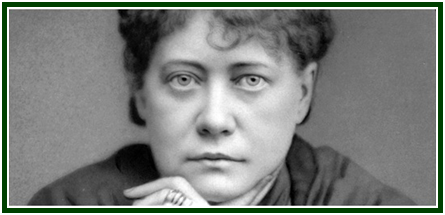In All Aspects of Life, Four Factors
Are Essential Tools for One’s Victory

* The science of life is a practical form of knowledge.
* Regardless of appearance, the pursuit of pleasure is the exact opposite of the pursuit of happiness. Lust and hatred never get too far from one another. Lust easily becomes anger, and the other way around.
* A civilization based on the search for short-term pleasure is doomed to live in growing ill-will, frustration, fear, anger and other forms of spiritual ignorance.
* These factors constitute a chain of causation which leads to large scale dishonesty, social injustice, wars and despair. On the other hand, valuable goals, honesty of purpose, purity of feelings and elevation of mind form a chain of causation which produces peace, both individually and in nations and communities around the world.
* The pursuit of true happiness is no different from the search for a knowledge of one’s spiritual soul, an understanding of universal wisdom and a love for the Law of the Universe. In order to be in harmony with the Law, all we need is a moderate amount of common sense, a modest degree of discernment, and an enduring will to improve oneself.
Solitude and Contemplation
* A degree of solitude may be comfortable - and even necessary - for those who seek to build a contemplative life. On the other hand, one must avoid any excess in the practice of self-isolation, which may become neurotic. Regarding the importance of preserving an open mind and good will towards all beings, a Master of the Wisdom wrote to a lay disciple:
* “Beware (…) of an uncharitable spirit, for it will rise up like a hungry wolf in your path, and devour the better qualities of your nature that have been springing into life. Broaden instead of narrowing your sympathies; try to identify yourself with your fellows, rather than to contract your circle of affinity.” [1]
* In every aspect of life, four factors are essential tools for one’s victory: balance, discernment, firmness, and a humble ability to learn.
Intelligent Human Beings
* Few people use their intelligence indeed, for intelligence is inseparable from ethics, humbleness and other qualities of the spiritual soul. Many human beings are educated from childhood to limit themselves to trying to be clever, instead of being intelligent.
* A Master of the Eastern Wisdom wrote:
* “Only the progress one makes in the study of Arcane knowledge from its rudimental elements, brings him gradually to understand our meaning. Only thus, and not otherwise, does it, strengthening and refining those mysterious links of sympathy between intelligent men - the temporarily isolated fragments of the universal Soul and the cosmic Soul itself - bring them into full rapport. Once this established, then only will these awakened sympathies serve, indeed, to connect MAN with - what for the want of a European scientific word more competent to express the idea, I am again compelled to describe as that energetic chain which binds together the material and Immaterial Kosmos, - Past, Present, and Future - and quicken his perceptions so as to clearly grasp, not merely all things of matter, but of Spirit also.” (“The Mahatma Letters”, p. 29.)
* The Eastern teacher goes on:
* “I feel even irritated at having to use these three clumsy words - past, present and future! Miserable concepts of the objective phases of the Subjective Whole, they are about as ill-adapted for the purpose as an axe for fine carving. Oh, my poor, disappointed friend, that you were already so far advanced on THE PATH, that this simple transmission of ideas should not be encumbered by the conditions of matter, the union of your mind with ours - prevented by its induced incapabilities! Such is unfortunately the inherited and self-acquired grossness of the Western mind; and so greatly have the very phrases expressive of modern thoughts been developed in the line of practical materialism, that it is now next to impossible either for them to comprehend or for us to express in their own languages anything of that delicate seemingly ideal machinery of the Occult Kosmos.” (“The Mahatma Letters”, same p. 29.)
* Each student of philosophy must constantly challenge his own limitations, and expand horizons all the time.
NOTE:
[1] Second paragraph of letter 66, p. 367 in “The Mahatma Letters”.
000
The article “Thoughts Along the Road - 86” was published on the websites of the Independent Lodge of Theosophists on 09 July 2025. An initial version of it is part of the September 2022 edition of “The Aquarian Theosophist”, pp. 13-15.
000
Read more:
000
Print the texts you study from the websites of the Independent Lodge. Reading on paper helps us attain a deeper view of philosophical texts. When studying a printed text, the reader can underline sentences and make handwritten comments in the margins that link the ideas to his personal reality.
000

Helena Blavatsky (photo) wrote these words: “Deserve, then desire”.
000
